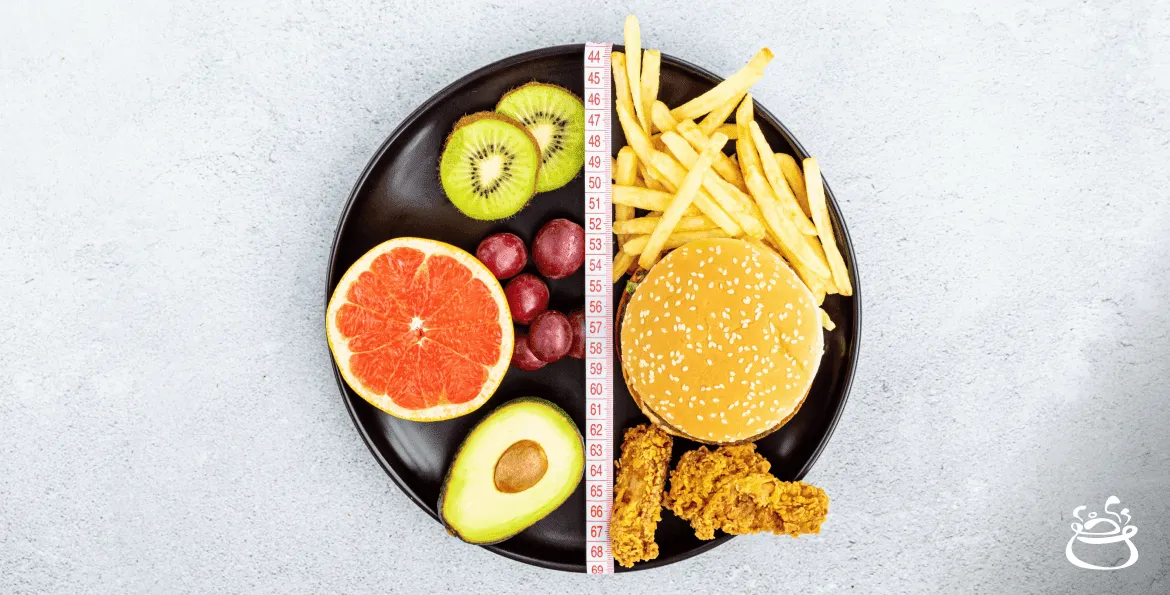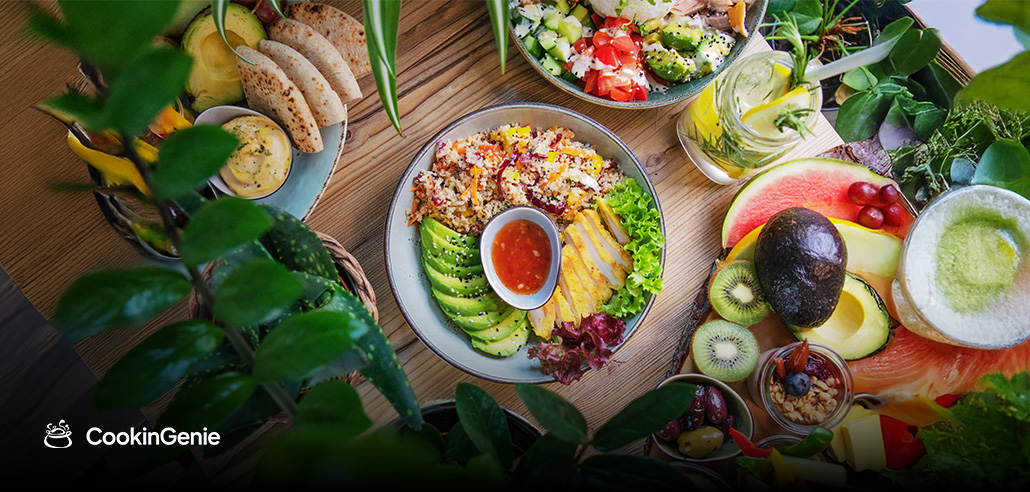Slowly Transitioning Away from Processed Foods for Better Health
Making the change for a healthier lifestyle can often be challenging and intimidating. Many of us turn to processed foods for convenience or because we think eating healthy is too expensive. Fortunately, some solutions can help us transition away from processed foods and start making our health a priority. In this blog, we’ll explore the benefits of slowly transitioning away from processed foods and discover simple strategies that you can use to make this transition as effortless as possible. Armed with this knowledge, you’ll be able to achieve better health without sacrificing taste or convenience.
Benefits of Transitioning to a Whole Foods Diet
Transitioning from a diet involving processed food to one based on whole foods can profoundly benefit your physical and mental health. Research has shown that a whole foods diet can lead to weight loss, lower cholesterol, decreased risk of heart disease, and improved overall health and wellness. Furthermore, you may cite an improved sense of well-being due to a shift in your eating habits beyond the physical changes. You may have increased energy, improved moods, and even better sleep when you eat more leafy greens, fruits, and other nutrients. Making this switch may require some adjustments initially, but it is often well worth the effort when you begin reaping the rewards.
Challenges in Eating Healthier
One of the main obstacles to eating healthier is finding something to replace processed foods. Many of us do not know what to eat instead or how to make it. Creating nutrient-dense and tasty meals can be daunting, especially when you’re accustomed to relying on convenience products with the same flavors each time. Additionally, shopping for food can feel overwhelming, picking through aisle after aisle of options with little direction or guidance. Lastly, to successfully make dietary changes, you must meet cravings and temptation head-on during the adjustment period.
Reasons for Making the Change
Changing our diets from processed foods to real, natural foods can significantly improve our health and well-being. Eating mainly processed foods means we can become vitamin and mineral deficient and miss out on the natural plant compounds known for aiding digestion and boosting immunity. Transitioning to a diet of whole, fresh, unprocessed foods – such as fruits and vegetables – can increase the quality of our nutrition, which will help improve overall health. You don’t need expensive “superfoods,” but more variety in what you eat daily. Changing even minor aspects of our diets – such as replacing a sugary snack with some fruit – can provide significant long-term benefits. An improved diet will make you feel better mentally and has been scientifically proven to directly impact energy levels and cognitive function. Here are a few reasons for switching to a whole-food diet.
Avoid Nutrient Deficiencies
Eating processed foods like boxed macaroni and cheese, pre-made dinners, or frozen entrees may be convenient, but they do not provide the same nutritional value as a meal made with freshly cooked ingredients. Even foods labeled ‘low fat’ or ‘all-natural’ are often heavily processed with added preservatives, sodium, and sugar and can contribute to nutrient deficiencies in your diet if consumed too frequently. Transitioning from processed food requires a shift towards preparing meals at home with fresh ingredients containing the vitamins and minerals necessary for good health. With some pre-planning and organization, you can make healthy eating an easy part of your diet while avoiding any potential nutrition deficiencies.
Improved Digestive Health
Shifting from processed foods is necessary to improve digestive health. Without these foods that are often high in fat, sodium, and added sugars, your body can focus on eliminating toxins and take advantage of various natural nutrients that provide support and guidance. Taking this step can also reduce inflammation levels, as many additives in processed foods can contribute to elevated reactions within the body. Complex carbohydrates found in whole grains also provide sustained energy levels, whereas processed foods offer a short-term rush followed by exhaustion. Utilizing plant-based proteins can also help improve digestion and build muscle mass. Though small changes at first may feel daunting, you can start by substituting or omitting certain unhealthy ingredients such as trans-fat for healthier ones like extra-virgin olive oil or maple syrup. These steps will only benefit your digestive health eventually.
Natural Weight Loss and Management
Transitioning to whole-natural foods is a practical and healthy way to manage and lose weight. Processed or packaged foods contain hidden sugars, fats, and salt that leave you bloated, exhausted, and unhealthy. Transitioning away from these processed products, like pre-packaged meals or snacks, and replacing them with nutritious proteins, fats, whole grains, and fruits and vegetables will provide your body with a wide range of essential nutrients and help to boost your energy levels. Eating fresh foods also allows you to monitor your calorie intake more efficiently. Furthermore, you will be continually reminded of your goals as you prepare meals instead of relying on ready-made products. This practice can help with motivation when looking for natural weight loss solutions.
Prevention Against Disease
Eating processed foods has recently become a habit for many, making it more difficult to transition away from these unhealthy convenience items. However, doing so is vital to the prevention of numerous diseases. Choosing a healthier lifestyle means educating ourselves on what foods are better for our bodies. Eating natural or unprocessed food is essential, as it helps create chemical balance in the body and strengthens immunity, which aids in the prevention of disease and infection. Over time, neglecting plant-based diets rich in grains and legumes may cause essential nutrients to be absent in processed goods. Therefore, it is best to analyze your current diet, remove the common culprits such as sugar, white flour, and other additives, then replace them with nutrient-rich alternatives wherever possible. Therefore, transitioning from processed foods is undoubtedly necessary for better health outcomes, a lifestyle choice you should consider throughout your lives.
Steps for Transitioning to a Whole Foods Diet
Transitioning to a whole foods diet is essential for a variety of reasons. For one, it can help reduce the risks associated with dietary-related diseases and health complications such as heart disease, diabetes, and obesity. Eating whole foods increases the intake of natural minerals, vitamins, and antioxidants essential for optimal health. Additionally, eating a more varied array of nutrient-dense foods can further improve the overall well-being of an individual. However, transitioning to a whole foods diet can be challenging; it requires planning and dedication to have longevity. But if done right, it can detoxify the body and mind while helping you achieve your nutritional goals.
Determining What Foods to Cut Out
Transitioning to a whole-food diet can be intimidating, particularly when determining what foods you should consider cutting out. It is wise to decide which foods will make up your meals and snacks going forward; it is also wise to be mindful of ingredients that are not part of a healthy lifestyle. Once you have identified these potential impediments, it becomes easier to plan a shopping list and time your meals according to when you are most likely to feel hungry. Eating whole foods requires being aware of your body’s needs and learning which foods can provide the right combination of vitamins and minerals for optimal health. This cognition generally means eating more plant-based whole foods such as vegetables, legumes, grains, fruits, and nuts. With proper planning and preparation, making this dietary shift can become manageable over time.
Finding Healthy Alternatives
Making the switch to a whole foods diet becomes relatively easy when you know about healthy alternatives. You can create a grocery list of healthy options for snacks and meals. For instance, if you’re used to eating potato chips with your sandwiches at lunchtime, reach for baked zucchini chips or homemade kale chips instead. Replace sugary desserts with fresh fruit salad topped with dark chocolate shavings or yogurt-based popsicles. Use olive oil, avocado oil, and coconut oil instead of vegetable oils when preparing meals. If you are trying to avoid meat, opt for legumes like chickpeas and lentils as an excellent source of protein. With healthy swaps that satisfy cravings and are easy to find at any supermarket, transitioning to a whole-food diet will seem effortless.
Furthermore, hiring a private chef can support your goal of eating healthy.
Meal Planning and Preparation
Switching to a whole foods diet is simple and enjoyable with proper planning and preparation. Imagine waking up each morning knowing what you’ll eat that day and having all the ingredients you need to make it happen. That’s the beauty of meal planning. By dedicating just an hour each weekend to planning your meals and grocery shopping, you’ll save yourself from the stress of deciding what to eat and prevent the temptation of unhealthy junk food. Think of it as an investment in your health and happiness. Not only will it make the transition to a whole foods diet much smoother, but it will also set you up for long-term success. So, grab a notebook and plan your meals for the week. Your body (and taste buds) will thank you.
Making Healthier Eating Habits Permanent
Making a transition to a whole foods diet is often met with enthusiasm and the desire to make healthier eating habits permanent. While it can be easy to jump in feet-first, taking the time to make this change in small steps is essential. Start by introducing one whole food item into your weekly meal plan that you usually would not eat as a snack or for breakfast, lunch, or dinner. Additionally, replace one food item per week with its more wholesome alternative. Research and explore what foods are available and their nutritional value. Keeping a journal of these changes and tracking progress can prove helpful in recognizing yourself for making small shifts each day. Additionally, build positive long-term behaviors by having healthy snacks such as fruits, nuts, and veggies available throughout the day. With the proper persistence and perseverance, healthier eating habits will soon become second nature.
Conclusion
Transitioning to a whole foods diet is an incredibly beneficial change that will positively impact your health. You can rest assured knowing that by transitioning to this diet, your body will have essential nutrients and vitamins you would not obtain through processed foods. It can also help you maintain a healthy weight and prevent chronic illnesses. On top of those benefits, it ensures that what you are eating is natural, organic, and in its freshest form rather than being laden with dangerous additives or unnecessary artificial sweeteners. Making the switch from relying on processed food to consuming whole foods is one of the best possible things you can do for yourself.



 Settings
Settings
 Gift Card
Gift Card Blog
Blog Locate Us
Locate Us










 Home
Home
 Chefs
Chefs
 Chats
Chats
 My Order
My Order



